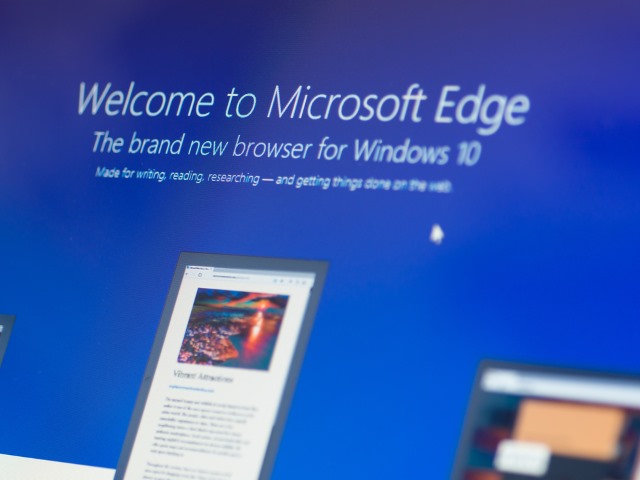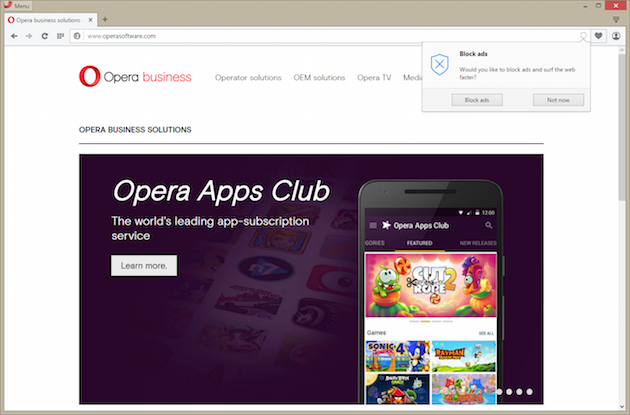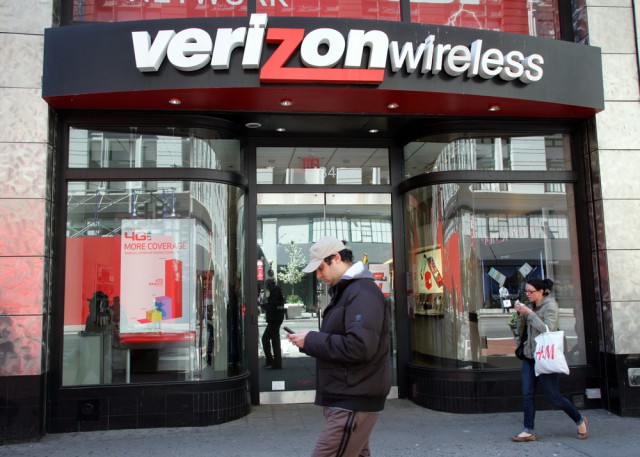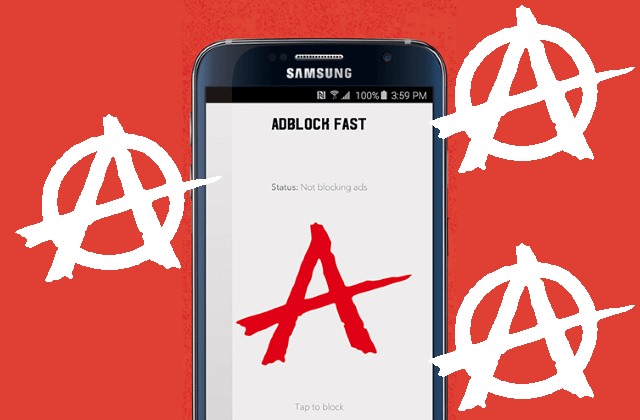
Social ad spending rises by 86 percent
Spending on social media advertising has increased by 86 percent in the first quarter of this year compared with the same period in 2015. It's also up eight percent when compared to last year's final holiday shopping quarter.
These findings come from agile marketing specialist Kenshoo based on data managed by its platform for over 3,000 advertiser and agency accounts. It attributes the growth to the appeal of new ad types like Facebook Dynamic Product Ads and increased inventory through Instagram.

Forget extensions, built-in ad blocking is coming to Microsoft Edge - [UPDATE... no it's not!]
One of the first browser add-ons many people install to improve their online experience is Adblock Plus or something similar. Until recently, Microsoft Edge's lack of support for add-ons put off a lot of would-be users, but reports from Build 2016 suggest that native ad blocking is on its way to the Internet Explorer successor.
Adblock Plus is coming to Edge, but built-in ad blocking would negate the need for such an add-on. A slide shown off and snapped at a Build presentation shows that the next version of Edge, in response to user feedback, will feature ad blocking capabilities. There's no word on delivery timescale, but the upcoming Windows 10 Anniversary Update would seem a likely candidate. [Update: we now have a clarifying statement from Microsoft that puts rather a different spin on things].

French media goes on the offense against ad-blockers
French media is bringing the fight to ad blocking software. According to a report by The Guardian, a number of local outlets are preventing readers who run ad-blockers from accessing their content.
The sites, some of which are major media publications, are part of a trade association representing online businesses. They’re saying that by using ad blocking software, users are depriving the companies of valuable revenue sources, killing the business.

Ads are eating your mobile data allowance
A new study has revealed that ads on smartphones account for between 18 and 79 percent of downloaded data. The astonishing statistic gives mobile users another reason to despise ads on top of the annoyance, security and privacy concerns they already bring about.
With most mobile users having to stick to a monthly allowance, the suggestion is that it's time for mobile pages to go on a diet. The research carried out by Ender Analysis also found that JavaScript accounted for between 6 and 68 percent of downloaded data.

Opera's desktop browser adds a built-in ad-blocker
A growing number of major players in the tech industry are now in support for blocking ads. Apple offers this kind of feature in Safari on iOS, ASUS bundles AdBlock Plus on its mobile devices, while Three, a major UK carrier, blocks ads at the network level. And, as of today, Opera Software is also a member of this group.
Opera Software just announced that its desktop browser -- which is available on Windows, OS X and Linux -- will come with a built-in ad-blocker, which is a first for a major browser. The feature can be tested now in the Developer channel version of Opera and, once it is deemed ready for prime time, it will make its way to the public version of the browser.

Verizon will have to pay $1.35m fine over 'supercookie' tracking
The Federal Communications Commission (FCC) has announced that it has found Verizon Wireless to have deliberately violated the privacy of its users.
Verizon Wireless is the largest US carrier with over 100m subscribers, but failed to disclose the practice of using supercookies in order to violate their users privacy from late 2012 until 2014, violating a 2010 FCC regulation on Internet transparency.

Microsoft hits a new low -- sneaks Windows 10 advertising into an Internet Explorer security patch
It seems there are no depths that Microsoft will not sink to in its relentless quest to get the world using Windows 10. It’s already made the new OS a 'recommended' update for Windows 7 and 8.x, which will see the update download and install automatically on some systems.
But the company's latest sneaky trick is beyond the pale. According to Microsoft’s own documentation, a new security patch for Internet Explorer also "adds functionality to Internet Explorer 11 on some computers that lets users learn about Windows 10 or start an upgrade to Windows 10". In other words, as well as fixing vulnerabilities with Internet Explorer, the security patch will also advertise the new OS to customers. In what world is that acceptable?

One in five Brits blocks ads
An increasing aversion to online ads amongst British adults is posing a threat to online publishers, new figures show.
The latest figures from IAB in conjunction with YouGov reveal that more than one in five British adults, or 22 percent, are now using ad-blockers, representing a four percent rise compared to previous results in October 2015.

Adblockers 'pose a threat to the survival' of news and music websites
Is adblocking good or evil? It's a discussion that has been rumbling on for some time, and it shows no signs of going away any time soon. The reasons for blocking ads are plentiful -- privacy, speed, annoyance -- but there's no getting away from the fact that ads mean revenue, and without this income many sites simply would not exist.
The latest figure to wade into the debate is the UK culture secretary John Whittingdale. While not going as far as calling for a ban on adblockers, he says that companies such as Adblock Plus are operating "modern-day protection rackets", ultimately threatening the existence of news sites.

Adblock Plus comes (somewhat) clean about how Acceptable Ads work
The Acceptable Ads program from Adblock Plus has proved slightly controversial. The company behind the ad blocking tool, Eyeo, has already revealed a little about how it makes money from the program -- despite the fact that no money changes hands in most whitelisting cases -- and today it has opened up further about how it makes its money.
Whilst recognizing that people do want to block ads, Eyeo is also aware that sites do need to benefit from ad revenue -- hence Acceptable Ads, non-intrusive ads that it is hoped are less irritating and therefore easier to stomach. But Eyeo itself also wants to make money. How does it decide which company to charge for Acceptable Ads whitelisting, and what to charge? If you're expecting full transparency, you might be disappointed, but we are given a glimpse into how the financial side of things works.

Facebook has missed a trick or two with its limited Reactions
After years of pestering, yesterday Facebook finally supplemented the famous Like button with five additional Reactions. To the disappointment of many, the much-requested Dislike button is yet to make an appearance, but this is not the only way in which the social network has let people down.
Advertisers, page owners, and the general Facebook hoi polloi now have at their disposal six reactions that serve little useful purpose. Sure, it gives users the opportunity to express a slightly wider range of emotion, but the range is far too limited. Additionally, Facebook has let down its paying users more seriously -- it fails to register the meaning and intent behind the different reactions, rendering the six options almost pointless.

Mobile operator Three to block ads at the network level
Ad blocking has been going on for years, but it’s risen in popularity a lot lately, thanks in part to Apple allowing ad blockers into the App Store. Popular content blocker Adblock Plus has been having conversations with advertisers recently too and is looking to discover just why people block ads on the web.
In an interesting move, mobile network operator Three has announced that it will be using ad blocking technology created by Israeli startup Shine to block adverts on a network level.

#RIPTwitter? What's with all the hoopla?
There have been changes aplenty at Twitter as the company fights to remain relevant in an increasingly crowded social marketplace. There have been rumors that the famous 140-character limit could be dropped, and we're already seeing Twitter dropping the requirement to be logged into an account in order to see conversations. Just like Facebook, Twitter has also experimented with changing the order in which content appears in users' timelines, and it seems like this is something that's due to spread to everyone.
The company could be on the verge of launching a new algorithm-powered timeline that displays tweets not in reverse chronological order, but based on what it thinks you might want to see. Before the change has even been implemented, there has already been something of a backlash, with many people suggesting this could be the death of Twitter. The hashtag #RIPTwitter quickly started trending and is home to vocal opposition to the change.

Android adblocker apps blocked by Google
Well that was... brief. Just days after Samsung released an update that allowed for adblocking software to be installed on its handsets, Google has put its foot down. The company has already started to pull adblocking apps from Google Play.
Being so reliant on advertising revenue, it's understandable that Google might take a dim view of anything that stops the cash rolling in. Nonetheless, a move to block apps that have already proved incredibly popular has raised the ire of developers and users alike.

Samsung rolls out OTA update to bring adblocking API to Android handsets
2015 was the year that adblocking became one of the central debates concerning the web, and this looks set to continue through 2016. Adblock Plus is one of the best-known names in the field, but Apple also got in on the action by permitting adblocking tools for iOS. Now it's Samsung's turn to get in on the action.
The handset manufacturer is today starting the rollout of an over-the-air update that adds a new adblocking API to Android. Samsung has partnered with Rocketship Apps, and the company's Adblock Fast is the first app to take advantage of the API -- and there is a claimed 51 percent speed boost to be enjoyed.